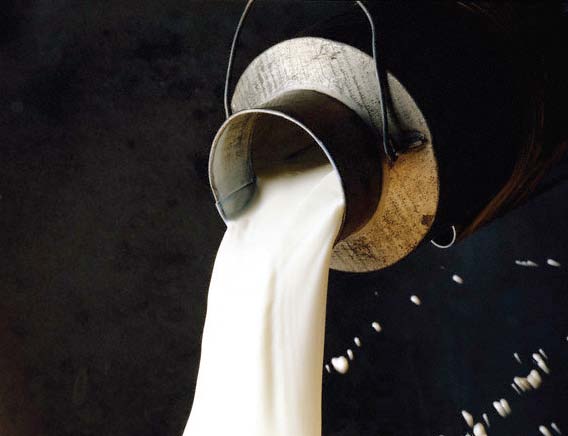
The urban areas in Pakistan are going through a transition phase with growing migration of people to big cities as they seek a high standard of living.
As far as lifestyle is concerned, a majority of urban population is following global trends, but in case of nutrition values, most of them still pursue what their forefathers did, market players say.
The ever green product for them is milk, preferably loose milk, which is the basic need of every household. However, these days many conscious consumers are getting uneasy with loose milk, the reason being its quality.
Adulteration in loose milk has forced many to gradually shift to Ultra High Temperature (UHT) milk. Most recently, the consumers are opting for pasteurised milk, which is rapidly getting popular because of its freshness and taste, which though is not equal to, but is relatively close to loose milk, according to the market players.
To grab this opportunity, Nestle Pakistan, a global food giant, has kicked off a campaign called Safe Milk Movement. Other companies are also striving to increase market share of their UHT processed milk, which accounts for hardly 3% of the milk consumed in Pakistan.

If pasteurised and powdered milk are added, the percentage level edges up to 4%. Still 96% of the market is held by loose milk.
“The level of contamination in loose milk is touching dangerous levels, it is the need of the hour to educate people about hazards of consuming loose milk,” says Dr Faqir Anjum, Professor of Food and Sciences, Government College Faisalabad while talking to The Express Tribune.
For this reason, Anjum’s department has joined hands with the Punjab Food Authority to launch an awareness drive to educate people about risks of consuming loose milk, which is said to have been banned by western countries.
“Even in India, some states have banned loose milk and only UHT processed and pasteurised milk is available in markets,” Anjum claims.
In Pakistan, the fifth largest milk producing country, people need to be told the benefits of UHT processed and pasteurised milk, as they directly link the awareness efforts with interests of the processed milk industry, he adds.
Sold openly, directly from the source, without processing, pasteurisation and protection from sunlight and wind, loose milk is considered fresh and natural. However, it contains bacteria due to unhygienic farming and milking conditions.
Apart from this, adulteration in loose milk has been going on without any check with dairy experts pointing out that the oldest and simplest method is to dilute it with water. In order to ensure that the milk’s appearance doesn’t change, milkmen (gawalas) add starch, flour, urea, vegetable oil, etc.
The simplest solution to this problem, according to Anjum and other dairy experts associated with production of UHT processed and pasteurised milk, is to pasteurise milk, which destroys pathogenic bacteria, present in raw milk.
Shelf life of loose milk is around four hours. However, in UHT processed process through ultra-pasteurisation, the shelf life gets longer without adding preservatives through boiling at 135-150 degree centigrade for two to four seconds.
UHT processed milk involves superheating it for a few seconds before cooling it. Pasteurised milk’s shelf life runs from 5 to 15 days, if refrigerated properly during transportation and distribution.
On the other hand, the shelf life of UHT processed milk is between three and six months and it doesn’t need refrigeration, however, it needs to be kept in refrigerator and consumed within three days after unsealing the Tetra Pak container.
Published in The Express Tribune, December 23rd, 2013.
Like Business on Facebook, follow @TribuneBiz on Twitter to stay informed and join in the conversation.
COMMENTS (13)
Comments are moderated and generally will be posted if they are on-topic and not abusive.
For more information, please see our Comments FAQ
1718870162-0/BeFunky-collage-(60)1718870162-0-405x300.webp)
1730504285-0/Martha-(1)1730504285-0-165x106.webp)





1719053250-0/BeFunky-collage-(5)1719053250-0-270x192.webp)









Maybe that's true but not 96% of it. It will be 80 to 90% in Lahore but i don't know about whole Pakistan.
I just cant believe that 96% of the market is held by loose milk in Pakistan..
Can i find more about it please...?? If someone knows then please send me link.. By the way nice article that is.
really informative.. I like that article, great stuff in it about milk.
This is a great article about Loose milk and UHT milk. I really like to read more about...
@muhammed:
What is your source for claiming that Tetra Pak milk contains all sorts of chemicals in white liquid form?
Best informative article about loose milk vs UHT milk.
Who needs science when we have our pitch forks!
It is incredible how these companies have marketed UHT milk. UHT of milk reduces its nutritional value as well. The best option is to go for Pasteurized Milk as is done in most developed nations. Pasterization kills of harmful bacteria while preserving the goodness and nutritional value of milk.
Loose/Pasteurise milk is far far better than UHT or Chemical milk, don't play with people's health for your personal benfits....
Pakistan is the 4th or 7th ( does not matter ) largest milk producer in the world.........and it costs around Rs 95 / litre for packeged milk. This greed for profit beyond justification by the big coperations also pushes the price of loose milk upwards forcing it to go out of the reach of the poor man........this is simply irresponsibe.
Bacteria contaminated loose milk vs chemical contaminated UHT. I'll choose the former. Pasteurized milk looks good btw. Hopefully, it is what it should be.